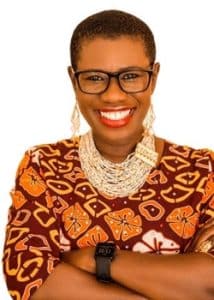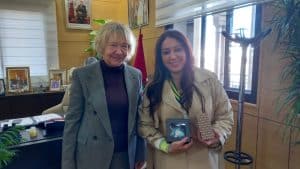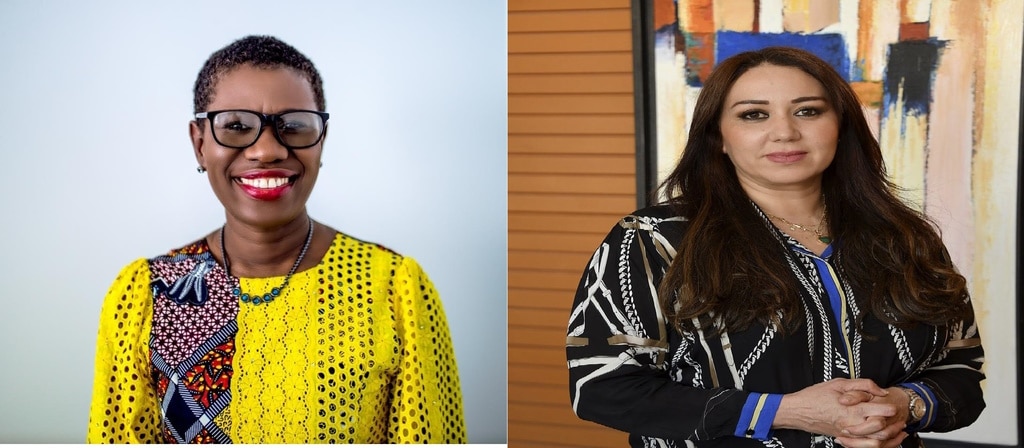Did you know that in Freetown, Sierra Leone, there is a post of "heat manager" within the municipality, and that in Casablanca the use of "koutchis" - animal-drawn carts - is now banned? Well, this is the work of Yvonne Aki-Sawyerr and Nabila Rmili, two women mayors who are campaigning for green cities on the African continent.
 Since her arrival at the head of the city of Freetown in 2018, Yvonne Aki-Sawyerr has been the talk of the town. The accountant by training has succeeded in making the ecological transition the focus of investment in the Sierra Leonean capital, which until now had a worldwide reputation for heatwaves and unhealthy shantytowns. In the space of five years, one of her first initiatives was to approve the New Global Green Deal promoted by C40 Cities, which enabled her to join a global network of 100 mayors united for climate action.
Since her arrival at the head of the city of Freetown in 2018, Yvonne Aki-Sawyerr has been the talk of the town. The accountant by training has succeeded in making the ecological transition the focus of investment in the Sierra Leonean capital, which until now had a worldwide reputation for heatwaves and unhealthy shantytowns. In the space of five years, one of her first initiatives was to approve the New Global Green Deal promoted by C40 Cities, which enabled her to join a global network of 100 mayors united for climate action.
The fifty-something, who has her feet firmly on the ground in the face of climate sceptics, has committed herself, for example, to combating drought by launching the “Transform Freetown” operation, which has led to the planting of 1 million trees. In 2022, Yvonne Aki-Sawyerr was chosen from among nine other cities around the world by the American non-governmental organisation (NGO) Bloomberg Philanthropies for the digital monitoring of Freetown’s biodiversity. This distinction certainly played a part in her recent re-election as mayor of this city of 1.2 million people.
Read also-SIERRA LEONE: the port of Freetown awarded the Green Terminal label
She was also made an Officer of the Order of the British Empire (OBE) by the late Queen Elizabeth II, and is a graduate of the prestigious London School of Economics and Political Science (LSE). It was from there that Yvonne Aki-Sawyerr was inspired to equip the city of Freetown with a cable car that should help to reduce daily traffic jams.
Greening Casablanca, Nabila Rmili’s credo
 Like Freetown in Sierra Leone, Casablanca, Morocco’s largest city with a population of 3.6 million, is run by a woman. She is Nabila Rmili. Now in her forties, she is using her experience as a politician to defend the environmental cause in Morocco’s business capital. This doctor, who has succeeded in increasing the municipal budget by 10% each year since her election in 2021, devotes up to 70% of her expenditure to funding ecological projects, starting with the proliferation of green spaces.
Like Freetown in Sierra Leone, Casablanca, Morocco’s largest city with a population of 3.6 million, is run by a woman. She is Nabila Rmili. Now in her forties, she is using her experience as a politician to defend the environmental cause in Morocco’s business capital. This doctor, who has succeeded in increasing the municipal budget by 10% each year since her election in 2021, devotes up to 70% of her expenditure to funding ecological projects, starting with the proliferation of green spaces.
For example, the fourth edition of Green Week, which Nabila Rmili led in February 2023, resulted in the planting of 100 trees around the Hermitage garden in Casablanca. A symbolic gesture, but still of little significance in view of the famous Municipal Action Plan (PAC) that she initiated for the period 2023-2028. At least 25 programmes made up of 100 projects that will require an audacious budget of 40 billion dirhams (3.7 billion euros). And there’s plenty of room in that budget for his vision of “Casablanca of tomorrow: an intelligent, sustainable and inclusive city”, promoted by the British Chamber of Commerce for Morocco.
Read also-POLLUTEC MOROCCO: the 12th edition opens in Casablanca on 14 September 2022
In any case, nothing stands in the way of Nabila Rmili’s determination, especially as we’re talking about Casablanca, the first African city to join the network of 25 smart cities selected by the Institute of Electrical and Electronics Engineers (IEEE) based in the United States of America. So there’s no question of growing insalubrity polluting the ambitions of the mayor of the White City, which is hosting the 13th edition of Pollutec Morocco in November 2023. For example, Nabila Rmili recently put an end to the era of the “koutchis” (two-wheeled vehicles), which are affecting air quality in Casablanca’s neighbourhoods. These are two-wheeled cars with sideboards pulled by donkeys or horses for transport that is considered to be polluting.
Benoit-Ivan Wansi







You must be logged in to post a comment.